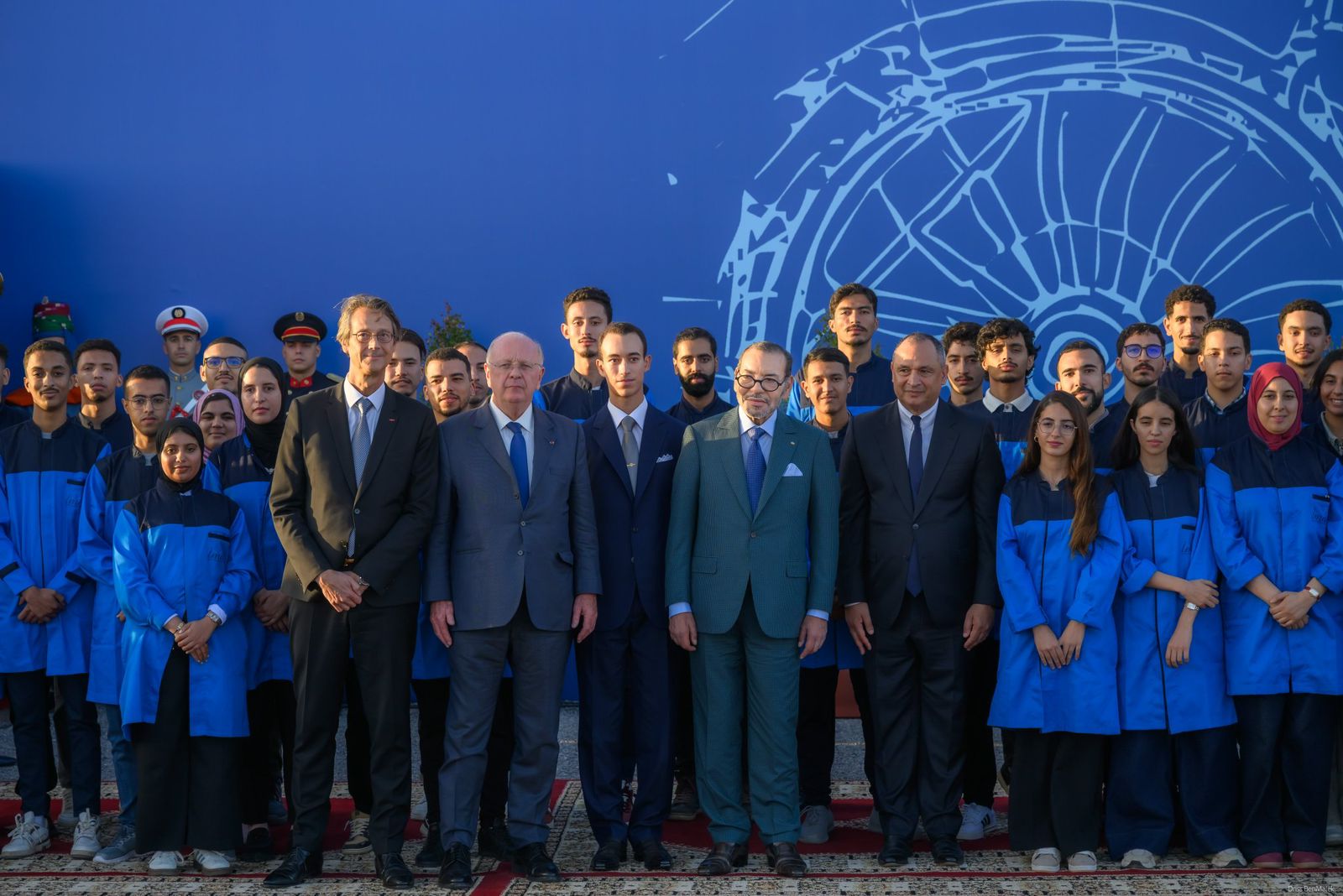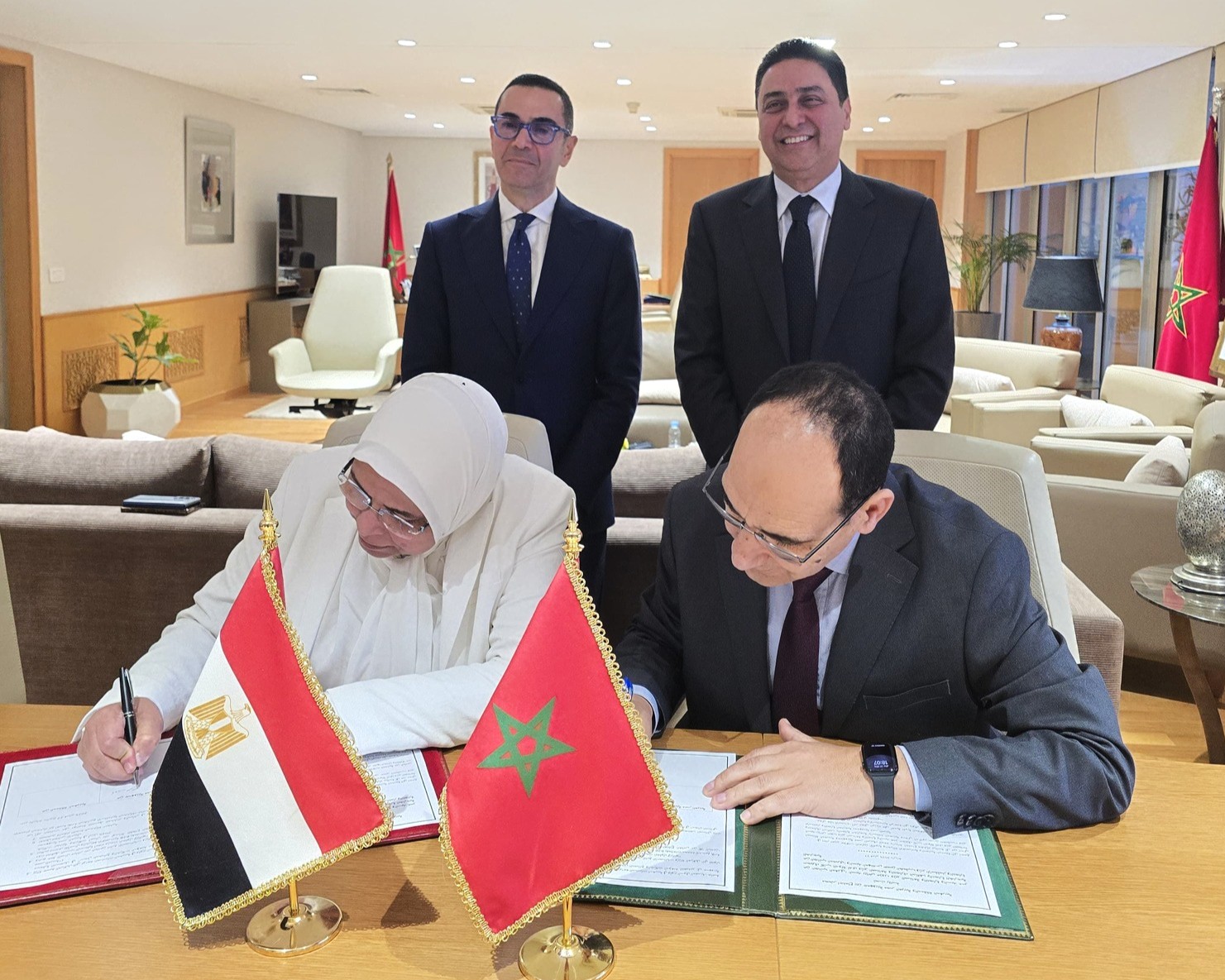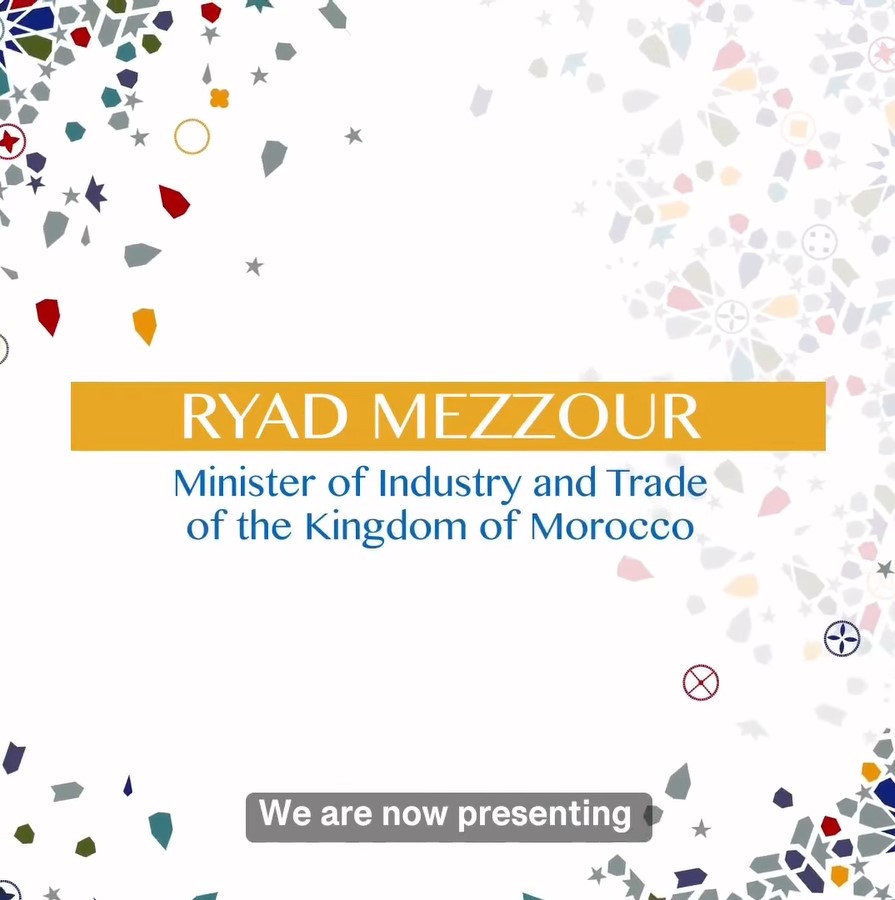Building Materials Industries adopt a performance contract
The building materials industries are being structured into an ecosystem and are adopting a performance contract. Five sectors are involved: prefabrication, ceramics, marble, steel and cement.
The performance contract was signed on 23 March 2016 in Rabat by the Minister of Industry, Trade, Investment and the Digital Economy, Mr Moulay Hafid Elalamy, the Minister of Economy and Finance, Mr Mohammed Boussaid, and the presidents of the professional associations of the sectors concerned.
The development of this ecosystem is expected to address the issues relating to the industrialisation of the sectors, improve competitiveness for import/export and reduce energy costs (developing use of biomass and household waste), to make up for the shortcomings of the sector, particularly the weak value-creation of some activities, the inadequate balance between available training and the sectors' needs and the lack of innovation in construction products.
Speaking on the occasion, Mr Elalamy pointed out that the implementation of this ecosystem will enable the revival of an efficient and competitive building materials industry, which will connect even more efficiently with other economic activities and particularly those of building and infrastructure works.
The “building materials industries” ecosystem will contribute by 2020 to:
• Create 28,0000 additional permanent industrial jobs, of which 16,000 will be direct;
• Generate 10.1 billion dirhams in additional revenue
• Create 2.9 billion dirhams worth of additional industrial added value;
• Achieve a positive impact of more than 4.8 billion dirhams on the balance of payment; 3.5 billion dirhams for exports and 1.3 billion dirhams for imports substitution.
• Generate an investment of about 2.75 billion dirhams for the sector.
The support of the Government under the performance contract includes a large range of measures which are perfectly adapted to the needs and expectations of the operators:
• Access to attractively priced property, with the provision of 210 hectares of rental property;
• Arranging a training plan covering 100% of the ecosystem's needs;
• Arranging a joint government approach/process for managing marble quarries;
• Proactive help for investors in the recovery of household waste;
• Support for the structuring of the ship dismantling industry.
The normative dimension will also benefit from such developments as norms will be strengthened, with the implementation of an efficient monitoring system as well as the systematic control of standards in the public procurement market.
The ecosystem support scheme also provides for the setting up of a joint committee between the Ministry of Industry, Trade, Investment and the Digital Economy and the Federation of Building Materials Industries, to ensure a proactive follow-up of the international markets and a joint governmental approach for managing marble quarries.
The development of the prefabrication sector will promote the industrialisation of the sectors and the upmarket move of Moroccan constructions especially through the improvement of investment conditions, support for modernisation, merging of small actors, stimulation of new product development with higher added value, and the development and control of standards’ application.
The development of the “ceramics” sector will make it possible to take up the competitiveness challenges the companies are facing, particularly regarding access to export markets, especially in Africa, and the local production of pigments and enamels which can potentially lead to a 20-25 point gain in competitiveness.
The revival of the marble sector, heavily dominated by small artisan companies, will contribute to the emergence of a tightly knit, modern and competitive industrial framework based around strong driving forces.
The relaunch of the sector will be based on actions such as optimising quarries management in order to promote the cost-effectiveness of operators, attracting new investors, developing SMEs and very small enterprises and support exports, particularly to the rest of Africa.
Concerning the “steel” sector, the aim is to build a strong steel industry, recognised as a benchmark across the region through an integrated development covering all competitive factors such as access to raw materials, optimisation of operational efficiency, stimulation of local demand and creation of new outlets for export in particular to Central and West Africa.
Regarding the “cement”, efforts will be focused on the development of a complete industry to recover the energy content of household wastes, representing weakly developed resource (6,8 million tons a year).
Share this article
read also

Communiqué de presse
Nouaceur: HM the King Chairs Presentation Ceremony, Launch of Construction Work of Safran Group’s 'Aircraft Engines' Industrial Complex
Nouaceur - His Majesty King Mohammed VI, may God assist Him, accompanied by HRH Crown Prince M...

Foreign trade: Announcement issued at the ministerial meeting between the Arab Republic of Egypt and the Kingdom of Morocco
As part of the strengthening of fraternal cooperation relations and the distinguished economic...

Day 3 of the Marrakech Air Show: Human capital and innovation in the spotlight
The 7th edition of the Marrakech Air Show, held under the High Patronage of His Majesty King M...




